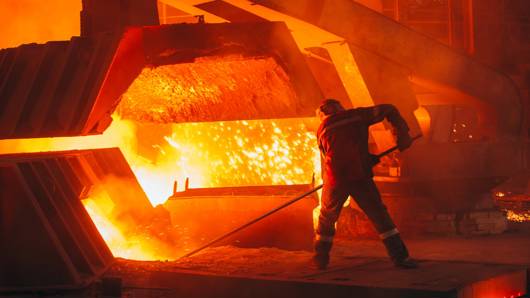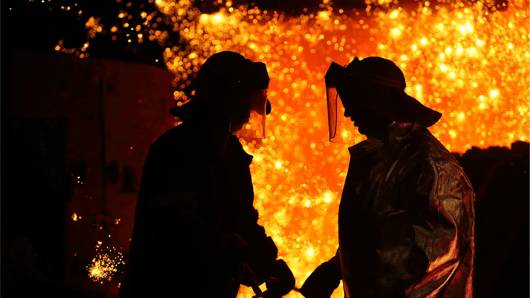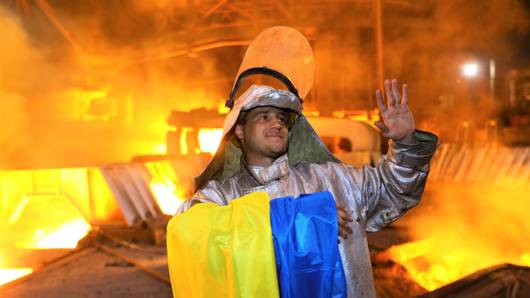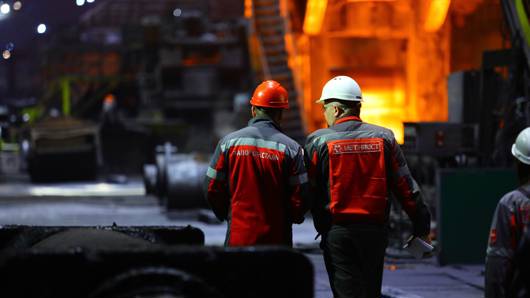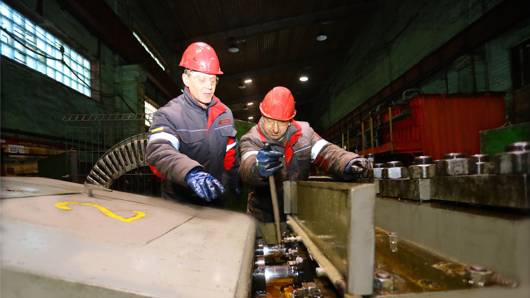The international group of companies Metinvest, which includes mining, steel enterprises and sales networks in Ukraine, the EU and the US, bore a heavy brunt during the Russian war against Ukraine. Nevertheless, Metinvest has proven its resilience and adaptability under the most demanding circumstances. In the interview below, Yuriy Ryzhenkov, the CEO of Metinvest, discusses how one of Ukraine's largest companies navigates the challenges posed by wartime with Ago Vilu, Country Managing Partner at PwC Ukraine.
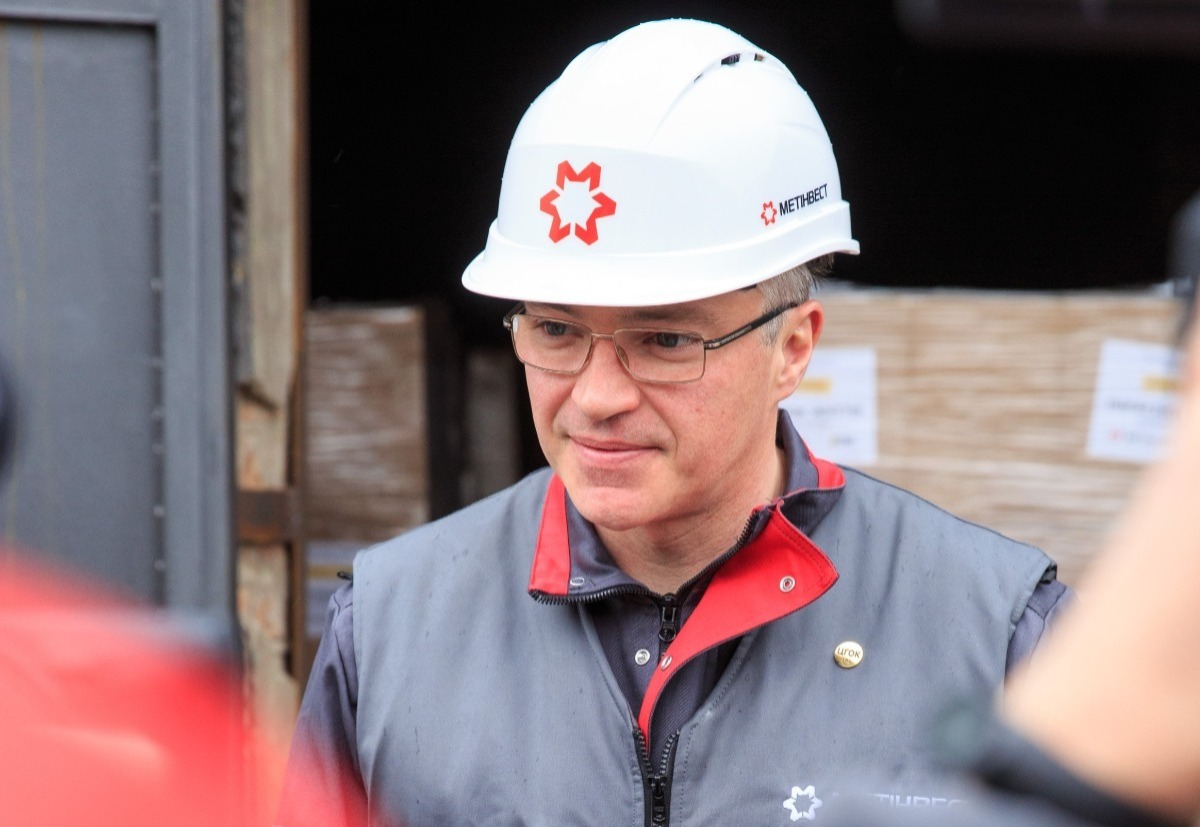
Yuriy, there are very, very few companies in Ukraine that have suffered more under the war than Metinvest. We all know about Azovstal, Ilyich Steel and Iron Works, very significant disruptions in your logistical routes, and so on and so on. Can you describe how you transformed the business and your group in those most difficult circumstances to survive?
Yes, it's true that Metinvest faced significant challenges at the outset of this invasion and continues to grapple with them. We lost control over our two primary production facilities in Mariupol, and we've had to make substantial adjustments to ensure the company's survival and hopefully its progress.
First and foremost, we needed to empower our overseas subsidiaries to operate independently, as they temporarily lost their vertical integration. While we're actively working to restore it, it was vital at that time to train them to thrive in an open market environment. Our goal was to ensure that even as one part of the company was struggling, the other could maintain its operations.
Next, but not necessarily in order of importance, was the evacuation of civilians from the most affected regions. Our priority was to relocate as many people as possible from those areas and provide them with essentials such as temporary shelter and basic necessities.
The third key initiative was our commitment to supporting the defense forces of Ukraine in their efforts to halt the Russian advance. This involved utilizing our heavy machinery for tasks like digging trenches and constructing fortifications, as well as supplying military support in the form of armor steel, bulletproof vests, and various other critical items.
“Our goal was to ensure that even as one part of the company was struggling, the other could maintain its operations”
Once these measures were in place, we had to reorganize the logistics of our remaining assets in Ukraine due to the blockade of Black Sea ports. We had to shift everything to the western border of Ukraine and collaborate closely not only with Ukrainian railways and ports but also with European counterparts, mainly from Poland, Romania, and Hungary. It became evident that their infrastructure was less equipped to handle the increased volume of goods.
Regarding the internal management of the company, delegation was the key principle. We emphasized delegating responsibilities to individuals who were closest to the unfolding events and on-site activities. This approach allowed for faster decision-making and increased accuracy in their actions.
Last year was very difficult in Ukraine, among others, because the Russians targeted Ukraine's energy infrastructure and it's quite likely that the same may happen this year and that we may face a very difficult winter again. How are you preparing for possible power outages?
Well, there are several steps we can take to ensure a consistent supply of electricity, such as imports or forward contracts, as we did last winter. We're prepared to do it again by importing electricity. However, it's important to note that we can't completely avoid blackouts due to infrastructure limitations. If a dedicated power substation isn't in place to supply a specific mill, it can result in an outage.
Building our own generation capacity to fully support our operations isn't possible. Instead, we can deploy modular power plants or large generators to provide sufficient electricity to orderly shut down the mill in case of blackouts. This is crucial for both steel mills and coal mines. In coal mines, there are people working underground, and there's the issue of ventilating areas with methane gas. Thus, having uninterrupted energy supplies is vital for evacuating personnel and maintaining proper ventilation. We've already installed these live generators or modular power stations to address this need.
In the steel mills, where continuous processes are at play, including cooling and hot metal production, the main goal is to avoid sudden shutdowns, which can be extremely detrimental. At Zaporizhstal, we have enough generating capacity to run even with just one blast furnace. This means we can maintain operations and support ventilation and water circulation for the rest of the processes.
“In the event of a sudden shutdown, we can gradually bring production to a halt, follow an orderly shutdown procedure for the mills, and then, when power is back, resume production seamlessly”
In Kamet Steel, while we can't maintain full furnace production, we do have enough electricity generation capacity to keep water circulation and equipment in an orderly manner. This allows us to shut down operations properly and restart them quickly once power is restored.
So, in the event of a sudden shutdown, we can gradually bring production to a halt, follow an orderly shutdown procedure for the mills, and then, when power is back, resume production seamlessly.
“Currently, Ukraine is pushing to expedite its path to European Union membership, which means we'll need to transition even more quickly than initially anticipated”
Thanks, Yuriy. So, in the current circumstances and during the war, a topic like green energy or green metal production may sound like a secondary topic, but nevertheless, Europe is moving in that direction and probably Metinvest has no other choice. What is your strategic view with respect to green metallurgy and how this can be achieved and implemented in Ukraine as a country and within Metinvest Group to have any strategic view on how decarbonization can be achieved in your group?
This isn't a secondary point. Even though the war is ongoing there, Metinvest is more than just a Ukrainian company; it's also a European company. Therefore, we need to align with the trends and requirements prevalent in Europe. Currently, Ukraine is pushing to expedite its path to European Union membership, which means we'll need to transition even more quickly than initially anticipated.
Our strategy remains unchanged. We formulated it prior to the invasion, and while we did lose assets in Mariupol, it hasn't altered our approach to our remaining assets. We continue to focus on transitioning our iron ore assets toward high-quality iron ore for DRI pellets, which is crucial for sustainable steel production in Europe. This is particularly significant since we lack sufficient scrap metal to feed electric arc furnaces. By the way, this is a critical concern for Ukrainian metallurgy.
It is fundamentally important for the industry's 'green transition' to strategically preserve as much secondary raw material, specifically scrap metal, within the country.
Moreover, we're in the process of designing potential facilities for DRI and HBI production, both in our Kryvyi Rih region, where the iron ore mines are located and at our steel mills.
At the steel mills, we're currently working on designs aimed at significantly reducing CO2 emissions in the short to medium term. This involves the strategic move of phasing out blast furnaces and replacing them with electric arc furnaces or smelters, depending on the chosen technology. This transition will align us with the best CO2 emission practices in Europe, which are currently considered the standard for sustainable steel production on the continent.
We all know that Metinvest has been a strong supporter of Ukraine, especially in the current circumstances. Can you name a couple of examples of how Metinvest has helped Ukraine already during this war and maybe any further plans in that area?
As I mentioned earlier, ever since the start of this invasion, we've been actively using our machinery to assist the Ukrainian forces in constructing defense lines across the regions where we operate, which happen to be some of the most heavily affected areas of the conflict.
In addition to this, we've resumed the production of special steel armor plates, which are then put to various uses, from fortifications to armoring vehicles and creating bulletproof vests. We provide these armor plates to the Ukrainian defense forces at no cost.
At times, we've dug out old drawings from the Soviet era to manufacture specialty items for the military, such as mobile or underground steel shelters. To date, we've produced more than 272 of these shelters and supplied them to the army.
“Our support for the Ukrainian defense forces has been extensive and continues without interruption”
We've also been involved in crafting military decoys, including fake radars and phony artillery. These decoys divert Russian artillery fire away from genuine targets, a strategic move to make them waste precious ammunition.
Furthermore, we've developed specialized equipment to intercept Lancet drones, particularly the kamikaze drones that explode in mid-air instead of hitting their intended targets.
In addition to these efforts, we've provided the army with nearly a thousand communicative radio pieces, 1,500 drones, 2,000 thermal imagers, and nearly 500 various vehicles, including ambulances and bulletproof vehicles. Our support for the Ukrainian defense forces has been extensive and continues now.
“Not to overlook something or make the wrong decision at a critical moment”
And maybe the last question. So, Yuriy, what has been your biggest challenge during those very, very difficult times? What keeps you awake at night?
The situation is incredibly dynamic and uncertain. There's a constant fear of overlooking something or making the wrong decision at a critical moment, which is undoubtedly the toughest part. Concurrently, we must ensure that the company functions as a cohesive team, with numerous interconnected processes at play.
On the one hand, there's a desire to centralize decision-making and treat the system as a whole. However, we recognize that this approach could result in inefficiencies on the ground and potentially lead to critical mistakes at our facilities.
This is the central challenge from my perspective.
Our chosen solution, and it's been working well so far, is to delegate responsibility to a significant extent, foster teamwork, and promote adaptability. We aim for a form of soft coordination. While we maintain a master plan and a coordinating body that connects various facilities, we delegate substantial decision-making authority to the individuals on the ground. That's been our approach and solution thus far.
Metinvest in Times of War
Metinvest is an international mining and metallurgical conglomerate, operating across various sectors of the industry. Within its expansive portfolio are mining and metallurgical operations in Ukraine, the European Union, the United Kingdom, and the United States, coupled with a far-reaching global sales network. The group has a firm grip on the entire production chain, from iron ore extraction and coking coal production to the manufacture and distribution of semi-finished and finished steel products.
In the first half of 2023, Metinvest achieved remarkable milestones, producing over 1 million tons of steel, 4.75 million tons of iron ore concentrate, and more than 3 million tons of coal concentrate. Notably, the group's metallurgical plants in Ukraine have been operating at 65-75% of their capacity, while the Kryvyi Rih mining and beneficiation plants have been functioning at 35-40%.
Since the onset of a significant conflict, Metinvest has been at the forefront of supporting the nation and its citizens, contributing nearly 4 billion hryvnias. Out of this, a substantial UAH 2 billion has been allocated for the military under the banner of Rinat Akhmetov's "Steel Front" military initiative.
Metinvest has emerged as one of Ukraine's leading private sector suppliers of ammunition, equipment, and machinery for the Ukrainian Armed Forces. The company has furnished the military with an impressive arsenal, including 150,000 bulletproof vests, over 25,000 helmets, and more than 1,500 drones, alongside a range of other equipment and machinery.
Metinvest has also pivoted towards the production of steel goods essential for front-line operations. This production includes bulletproof vest plates, mobile shelters, armored shields for vehicles, mock artillery systems designed to deceive the enemy, and "lancet catchers" aimed at protecting vehicles from hostile drones.
A remarkable 8,000-plus Metinvest employees and those from affiliated enterprises are standing as defenders of Ukraine, essentially translating to one in every six workers. The company ensures they are equipped with essential gear, from bulletproof vests to helmets and winter clothing kits.
The "Saving Lives" project by Metinvest has made an impactful difference by assisting nearly half a million individuals across 70 territorial communities, providing them with much-needed food and hygiene products. Additionally, hospitals have received medical supplies and equipment worth EUR 250,000. This initiative stands as one of the most significant humanitarian undertakings in Ukraine.
Metinvest remains committed to its mission of working towards victory and holds its position as one of Ukraine's foremost contributors to the national economy. In the first half of 2023, Metinvest, together with its associated companies and joint ventures, contributed over UAH 6.3 billion in taxes and fees to the various government budgets. This follows their substantial UAH 20.5 hryvnias tax contribution in the year 2022.






